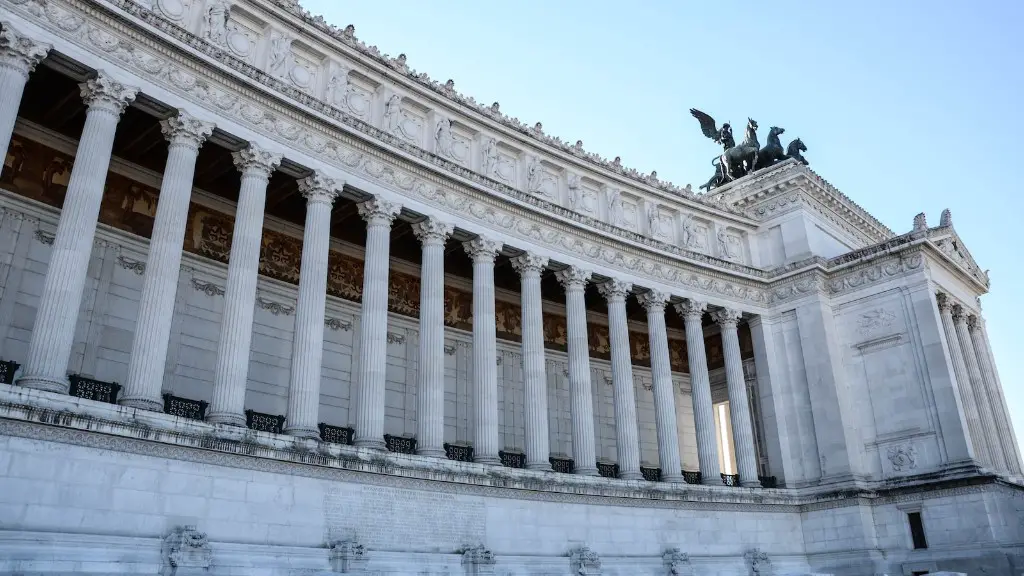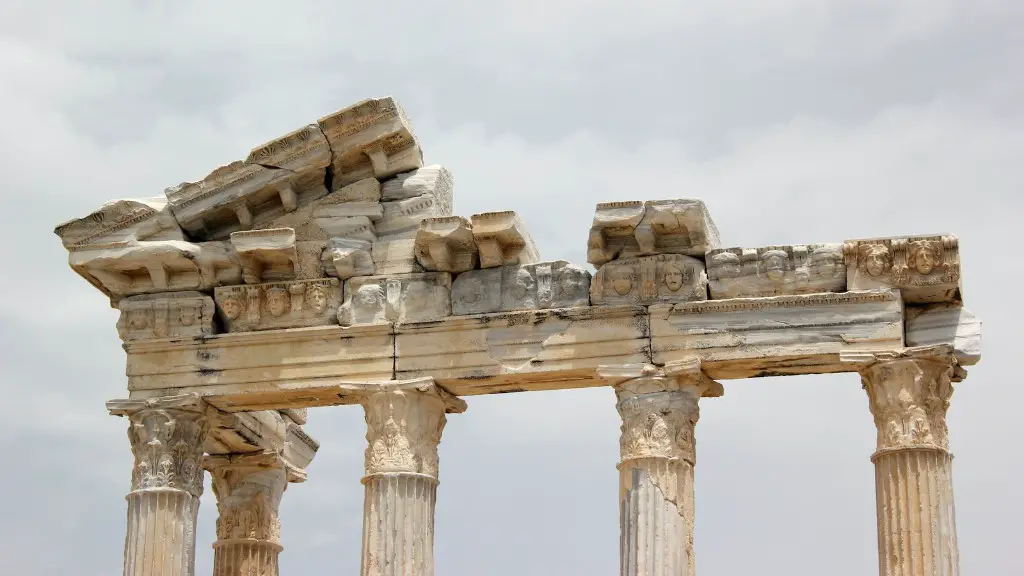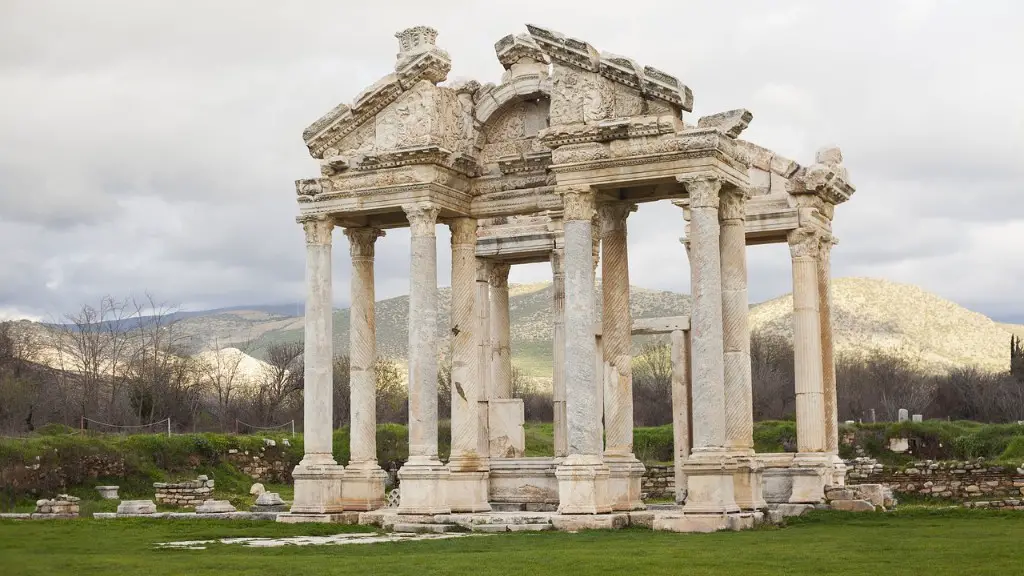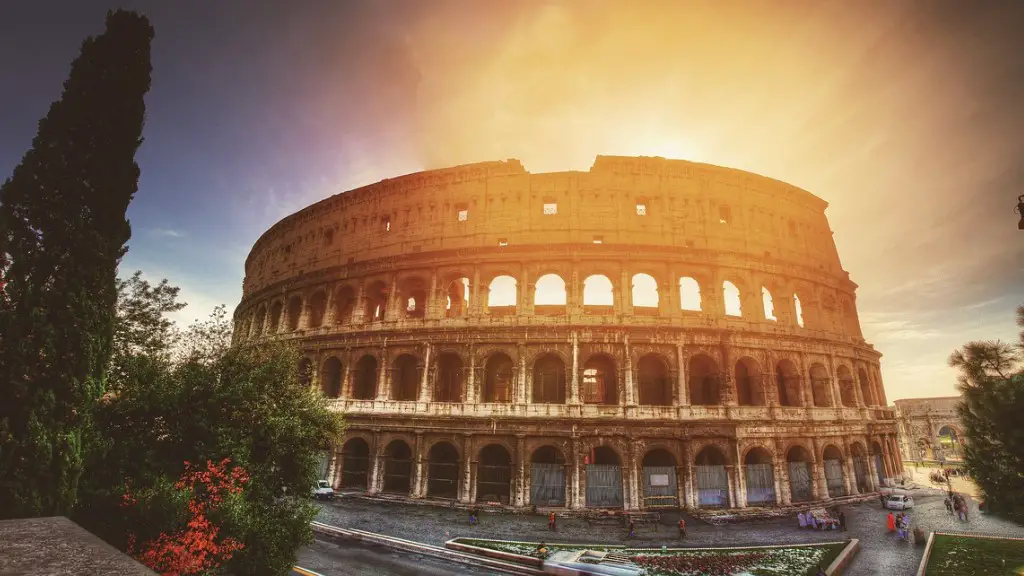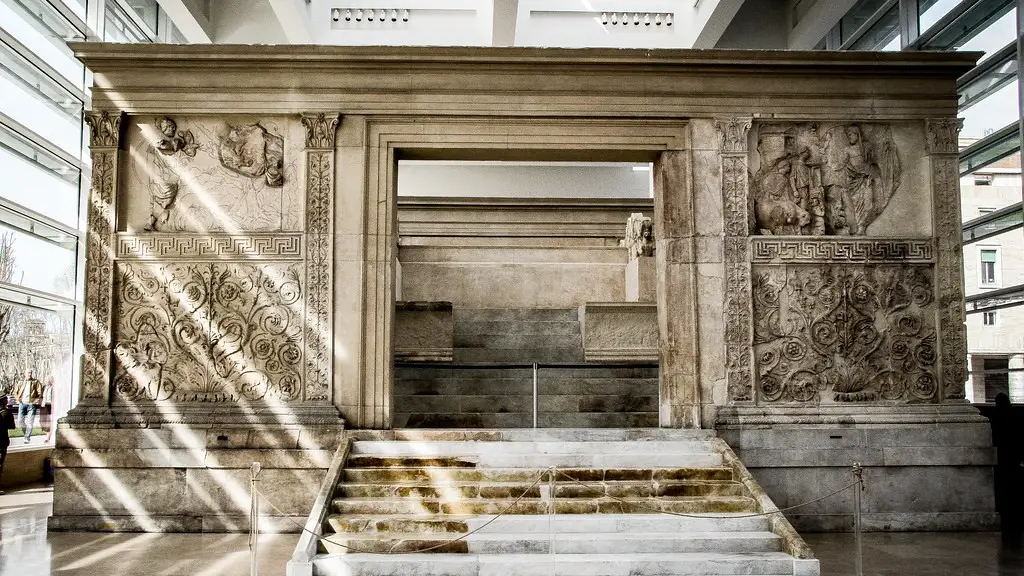Ancient Rome was greatly influenced by Greece. Rome adopted much of Greek culture, including the Greek gods, art, architecture, and literature. The Roman way of life was also heavily influenced by the Greeks.
There is no single answer to this question as there were many ways in which ancient Rome was influenced by Greece. One of the most significant ways was certainly through the adoption of Greek culture, which allowed Rome to become one of the great civilizations of the classical world. Additionally, the Romans borrowed heavily from Greek art, architecture, and literature, which helped to further cement their place as a leading culture. Greek philosophy and science also had a significant impact on Rome, particularly during the period of the Roman Republic. Ultimately, it is clear that Greece played a major role in shaping what ancient Rome would become.
How did ancient Greece influence Rome?
The Romans were greatly influenced by the Greeks in many different areas of life, including trade, banking, administration, art, literature, philosophy, and earth science. In the last century BC, it was considered essential for every wealthy young man to study in Athens or Rhodes and perfect his skills in rhetoric at the large schools of philosophy. This close interaction between the two cultures led to a significant exchange of ideas and knowledge, which greatly benefited both societies.
The Roman Empire was greatly influenced by Greek culture, which was brought to Rome through military victories. Roman soldiers would return home with works of art and learned Greeks who had been enslaved. This led to a significant increase in the spread of Greek culture throughout the Roman Empire.
What did Rome copy from Greece
As the Roman Empire grew in power, its citizens became increasingly interested in the culture of Greece. Wealthy Romans especially desired works of art that evoked Greek culture, and so Greek and Roman artists began creating marble and bronze copies of famous Greek statues. These copies allowed more people to enjoy and appreciate the beauty of Greek art, and helped to spread Greek culture throughout the Roman Empire.
Rome in the East, beginning with Constantine, became heavily influenced by Greek culture, with Greek becoming the prime language Eventually it became informally known as “The Empire of the Greeks”. In the west, Latin began to dominate. This cultural divide between East and West Rome was one of the main reasons for the eventual split of the Roman Empire into two separate empires.
Was Rome influenced by Greece?
The Romans were able to take the best aspects of Greek design and improve upon them. One example is their use of columns. While the Greeks used columns for structural support, the Romans incorporated them more for decoration. This made for a more aesthetically pleasing design.
The Roman gods became more anthropomorphic due to the influence of the Greeks. They adopted many of the Greek gods and their religion and myth became one. Under this influence, the Roman gods took on human characteristics such as jealousy, love, and hate.
Why did Rome admire Greece?
Greece has had a significant influence on Roman culture. Roman architects, for instance, copied many features of Greek architecture, including the use of columns and arches. Roman artists also borrowed heavily from their Greek counterparts, producing works that combined elements of both styles. Similarly, Roman writers frequently drew on Greek literature and philosophy for inspiration. Consequently, much of Roman culture has a distinctly Greek flavor.
Although the Romans conquered the Greek city-states by 146 BCE, the Greeks began to resent the heavy taxes they paid to support the luxury of Rome. However, Greece did not really decline as a culture because the Macedonians (Alexander the Great) and the Romans both adopted and spread Greek culture.
Did ancient Greece become ancient Rome
The final demise of ancient Greece came at the Battle of Corinth in 146 BCE. After conquering Corinth the ancient Romans plundered the city and wrecked the city making ancient Greece succumb to ancient Rome.
Although ancient Greece is no longer a world power, its legacy continues to this day. Many aspects of modern Western civilization can be traced back to Ancient Greece, such as the ideas of democracy, Socrates was an ancient Greek philosopher who is considered one of the founders of Western philosophy.
Aristotle was another ancient Greek philosopher who made contributions to the fields of logic, metaphysics, biology, and physics. Ancient Greece was also responsible for advances in literature and the arts. The works of Homer, a famous Greek poet, are still read and studied today.
What did Romans think of Greece?
The Roman view of the Greeks and the Greek ‘East’ is complicated. They had a great deal of respect for some ancient cultures, especially (but not limited to) Greece. They also based almost all of their literature on Greek models, and some elite Romans became enthusiastic followers of Greek philosophy.
The Roman Republic borrowed the idea of direct democracy from the Athenian democracy and amended it to create a representative democracy. This form of government was attractive to Europeans and European colonists who were looking for a way to govern themselves without the tyranny of a monarchy. The Roman Republic lasted until 27 BC, when it was replaced by the Roman Empire. Although the Roman Republic is long gone, the legacy it left behind in the form of the representative democracy is still very much alive and well in the modern world.
Did Roman mythology copy Greek
Roman mythology draws directly on Greek mythology, with many of the same gods, goddesses, and heroes appearing in both cultures. Roman mythology began to develop in its own unique way during the protohistory of Rome, but was greatly influenced by the Hellenistic period of Greek culture. Many of the famous stories and characters from Greek mythology were adopted by the Romans, often with changes to suit Roman culture. For example, the Roman god Jupiter is very similar to the Greek god Zeus, but Jupiter is often portrayed as a more stately and dignified figure than Zeus. The Roman goddess Venus is also similar to the Greek goddess Aphrodite, but is often shown as a more idealized, beautiful figure. The Roman hero Aeneas is also based on the Greek hero Achilles, but is portrayed as a more heroic and virtuous figure.
Although Greek Gods are arguably better known, Greek and Roman mythology often have the same Gods with different names because many Roman Gods are borrowed from Greek mythology, often with different traits. For example, Cupid is the Roman god of love and Eros is the Greek god of love.
How did Rome become Greek?
Roman Greece is a fascinating period in history, filled with great political intrigue, military conflict, and cultural exchange. This era saw the rise of Rome as a major power in the Mediterranean, and the Greek world was greatly affected by this new reality. The period also witnessed the ights and wrongs of many famous historical figures, including Alexander the Great, Julius Caesar, and Cleopatra.
Although Rome was indeed founded by Greeks, the claim that it was founded by the Greek hero Aeneas is an unfounded one. Hellanicus of Lesbos may have been the first toName Aeneas as Rome’s founder, but there is no evidence to support this claim. It is more likely that Rome was founded by a group of Greeks who migrated to the area and established a settlement there.
Was Rome a part of Greece
Greece plays an important role in the Roman Empire, as the Roman culture has been greatly influenced by the Greeks. The Greek language serves as a bridge between the East and the West, and many Greek intellectuals such as Galen have made significant contributions to the Roman culture.
The Roman–Greek wars were a series of conflicts between the Roman Republic and various Ancient Greek states during the late Hellenistic period. The list includes: the Pyrrhic War (280–275 BC), after which Rome asserted its hegemony over Magna Grecia.
Warp Up
Ancient Rome was greatly influenced by Greece. Roman culture was heavily influenced by the Greeks. Roman art, literature, and even religion were all deeply influenced by the Greeks. The Romans even borrowed heavily from Greek architecture, making many of their own great buildings based on Greek designs.
Ancient Rome was most influenced by Greece in the areas of religion and architecture. Roman gods and goddesses were modeled after their Greek counterparts, and the Romans built temples and other structures based on Greek design.
